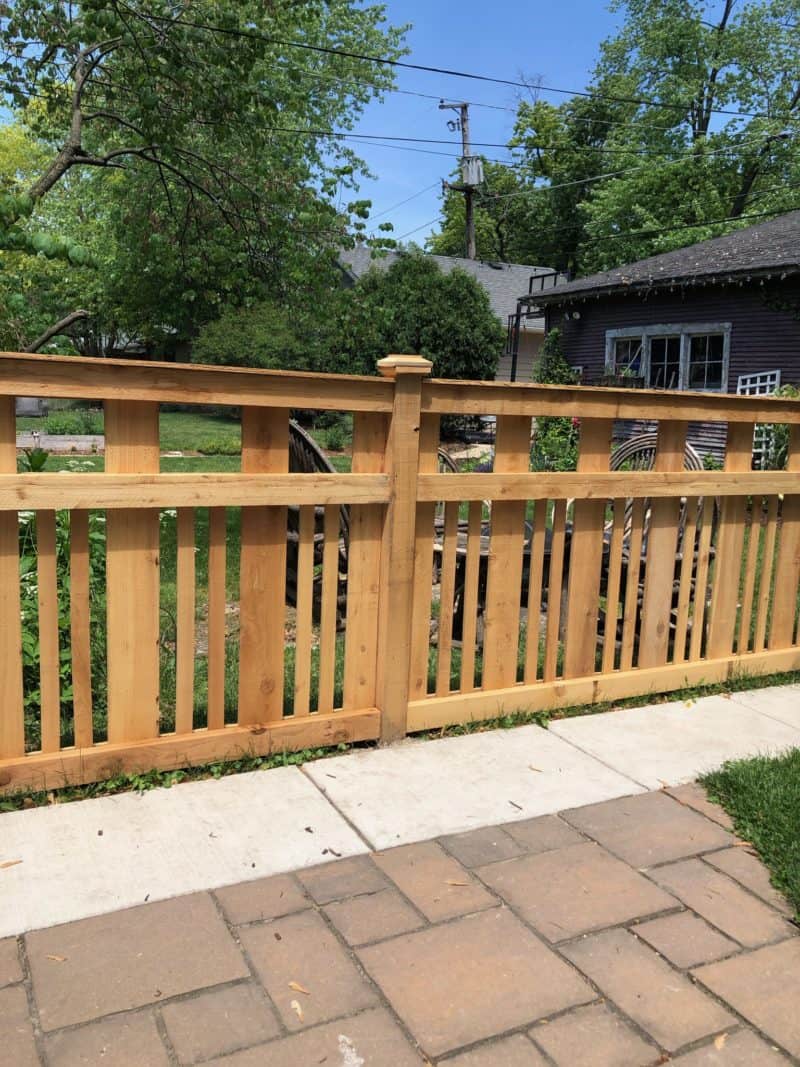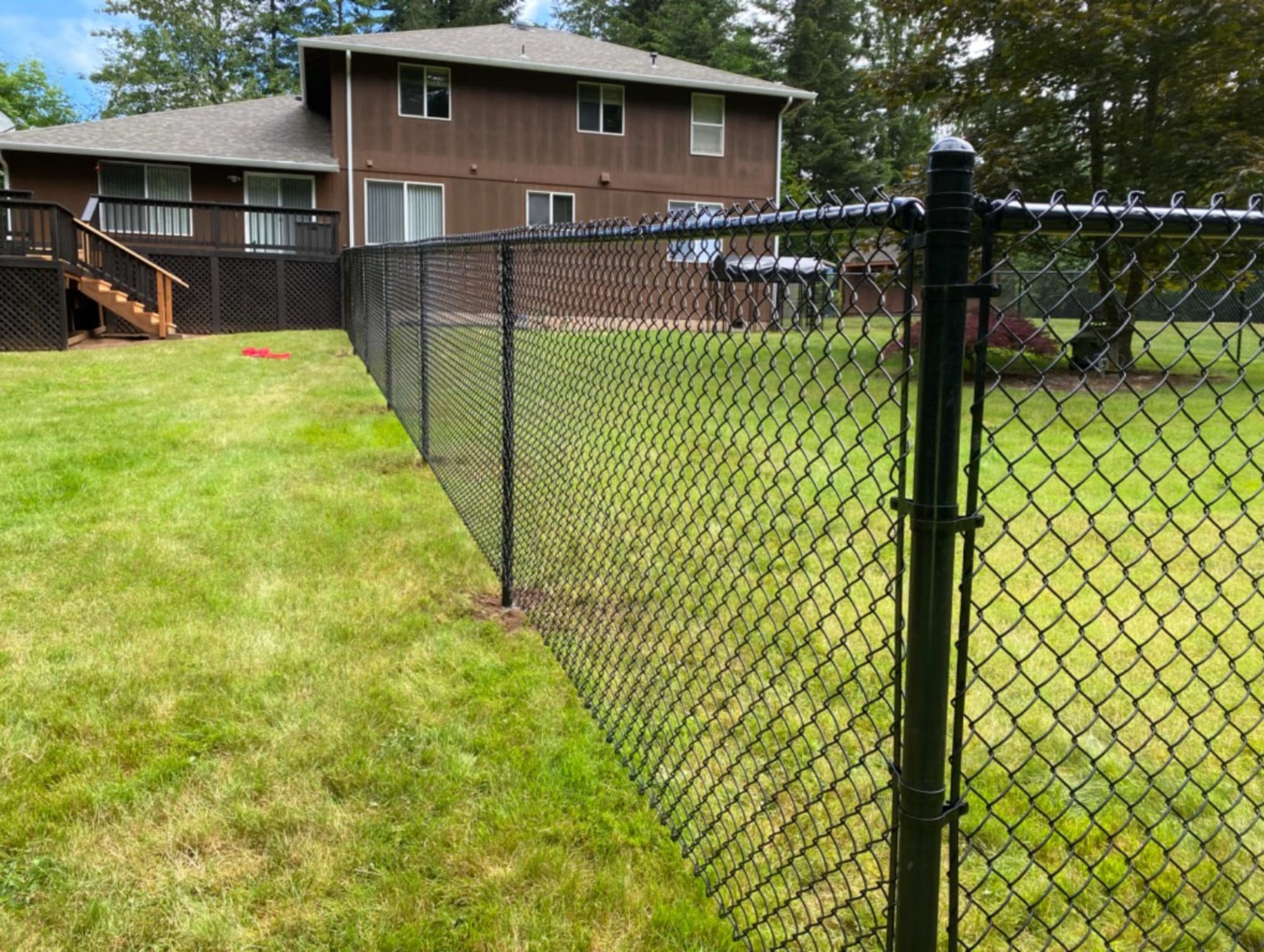All Categories
Featured

When it involves picking the appropriate fence material for your home, vinyl, timber, and aluminum are amongst one of the most preferred choices. Each material provides distinct benefits that suit various needs, choices, and budget plans. Comprehending the benefits and drawbacks of each type can assist you make an educated choice based on your concerns, whether that's visual appeal, durability, or maintenance requirements. Below, we break down the advantages and drawbacks of these 3 typical fencing materials.
Timber Secure Fencing. Pros:
Visual Appeal: Timber fences give an all-natural, traditional appearance that matches most sorts of landscaping and architecture. They can be conveniently tailored with paint or stain, giving you the liberty to produce the excellent color and surface for your property. Versatility: Timber can be made use of to create a range of fence styles, from typical picket fences to much more contemporary layouts like privacy fencings or rustic ranch-style fencings. It's simple to add or modify to gradually if your needs change. Price: Wood is usually much more cost effective than plastic or aluminum, making it an attractive option for house owners on a spending plan. The preliminary cost of a timber fencing is generally less than the other products. Disadvantages:

Upkeep Demands: Wood fences need regular upkeep, consisting of discoloration, securing, or paint to secure them from weathering, rot, and insect damages. Without correct treatment, timber can wear away quickly. Toughness: Wood is at risk to damage from pests like termites, and it can warp, crack, or split gradually due to exposure to the elements. In areas with severe climate condition, wood may need to be changed a lot more frequently than various other materials. Minimal Lifespan: While timber fences can last for several years with appropriate treatment, they normally have a much shorter lifespan than vinyl or light weight aluminum fences. Vinyl Secure fencing. Pros:
Reduced Maintenance: Among the greatest benefits of plastic fencing is its reduced upkeep needs. Unlike timber, plastic does not need to be painted, tarnished, or sealed. It's immune to fading, fracturing, or bending, making it perfect for property owners who want a problem-free fencing. Longevity: Vinyl fences are resistant and very resilient to the elements, including UV rays, rain, and moisture. They're also invulnerable to parasites, such as termites, that can damage timber fences. Variety of Styles: Vinyl fencings can be found in a large range of styles and shades, and many resemble the look of wood without the maintenance disadvantages. You can select from personal privacy fencings, picket fencings, and even more to suit your needs. Long Life expectancy: With correct care, plastic fences can last decades, far longer than wood fencings, and they come with warranties that offer satisfaction. Disadvantages:
Higher First Price: While plastic fences can save money on upkeep throughout the years, they often tend to have a higher ahead of time cost than wood fencings, which might be a deterrent for some buyers. Restricted Modification: While plastic fencings are offered in a selection of shades and designs, they lack the personalization flexibility that wood provides. You're limited to the pre-designed panels available, which may not match every one-of-a-kind aesthetic. Prospective for Cracking in Cold Climates: In extreme cold temperature levels, vinyl fencings can end up being brittle and might crack under effect, making them much less ideal for areas with freezing wintertimes. Aluminum Fence. Pros:
Longevity and Toughness: Light weight aluminum is a lightweight yet strong product that stands up to corrosion and rust, making it perfect for seaside locations or places with high moisture. Light weight aluminum fences need marginal upkeep and can withstand the elements for many years. Aesthetic Allure: Light weight aluminum fences use a sleek, modern look. They can be found in a selection of attractive designs and can be used to create an extra classy or contemporary search for your building. Low Maintenance: Light weight aluminum fences don't call for paint or securing, and they're immune to corrosion and deterioration, making them exceptionally low upkeep over time. Security: Aluminum fences give a higher level of safety compared to plastic or timber fencings as a result of their durable building and construction. They can be geared up with gateways and locks to provide a secure boundary around your residential property. Cons:

Price: Aluminum fences are often extra expensive than wood or vinyl fences, both in terms of products and setup expenses. This higher cost factor can be a disadvantage for budget-conscious homeowners. Much Less Personal privacy: Light weight aluminum fencings typically have an even more open style, with pickets spaced apart to allow visibility with the fence. If privacy is a priority, this might not be the ideal selection for your residential or commercial property. Prone to Denting: While light weight aluminum is rust-resistant, it can still be nicked or curved if struck with force, such as by a vehicle or hefty devices. While it will not corrosion, it might not retain its excellent appearance if it obtains damaged. Which Product is Right for You? Picking the very best fencing product relies on your specific needs, budget, and long-lasting prepare for your home. If you value visual personalization and are prepared to preserve it routinely, wood may be your best choice. Vinyl could be the suitable solution if you like low-maintenance toughness and are willing to spend a little bit much more in advance. On the various other hand, if you require a long-lasting, safe fence with a smooth appearance, aluminum may be the ideal material for you.
Eventually, consider your climate, maintenance preferences, and aesthetic needs when picking your secure fencing product. Each choice has its staminas and weak points, however with the right treatment and installation, all three can give appealing and dependable limits for your home.
Latest Posts
Can You Actually Conserve Cash by Acquiring an Utilized Car?
Published Feb 24, 25
3 min read
Check Engine Light On? We Repair It Fast-- Montclare Vehicle Repair Work!
Published Feb 24, 25
1 min read
Car Purchasing Guide: What to Search for in a Vehicle
Published Feb 24, 25
2 min read
More
Latest Posts
Can You Actually Conserve Cash by Acquiring an Utilized Car?
Published Feb 24, 25
3 min read
Check Engine Light On? We Repair It Fast-- Montclare Vehicle Repair Work!
Published Feb 24, 25
1 min read
Car Purchasing Guide: What to Search for in a Vehicle
Published Feb 24, 25
2 min read